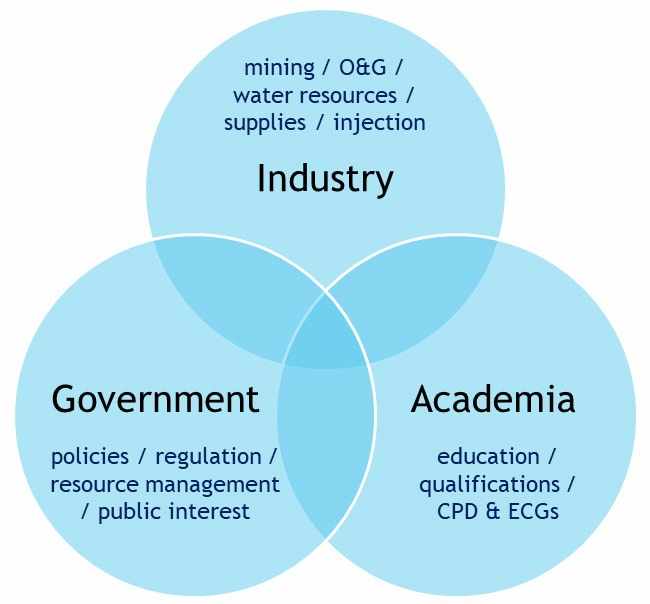This article is based on a talk we recently presented at the Australasian Groundwater Conference 2022 in Perth. AGC22 is a hydrogeology dedicated event run by the International Association of Hydrogeologists (IAH) Australian chapter. This paper was developed to present (again) the importance of professionalism and competency within our industry, and is a renewed effort to raise our levels of competency and professionalism aligned to increasingly connected public perceptions. This paper was hydrogeology focussed but certainly has relevance across the broader geoscience community.
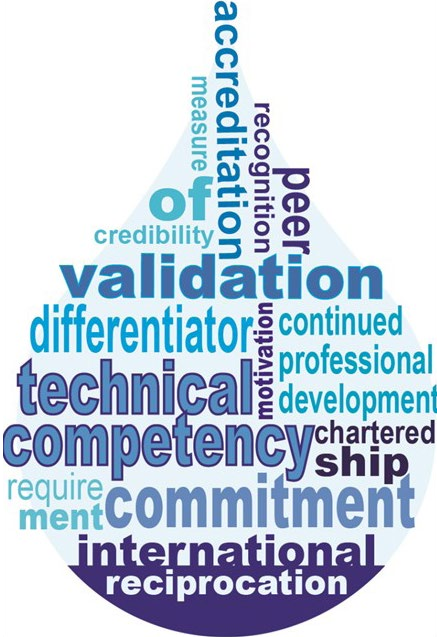
The Australian Council of Professions (ACOP, 2003) provide a concise description of professionalism, key elements to this paper are highlighted and underlined:
These are powerful and meaningful statements. Professionalism and public awareness of our qualifications and experience is becoming more important as society and industry expectations of our work becomes increasingly raised through heightened ESG awareness, the need for competent technical water management advice surrounding the challenges associated with the transition away from the carbon economy, the focussed recognition (for example through the GISTM) of the need for our specialist services, and a greater demand for information and public awareness through social media.
Our corner of the geoscience sector currently lacks this public transparency and industry professional commitment.
In an exercise separate to the paper but directly relevant, co-author Doug brown initiated a feedback request from the existing pool of RPGeo (Hydrogeology) professionals, framed around the question “Why did you become an RPGeo (Hydrogeology) through the AIG?”
The results were combined into a word map which provides a valuable sense of professional meaning and purpose to those already committed. This aligns very well with the description of a profession after ACOP, and the proposed mechanisms of career adaptation presented in this paper.
Hydrogeologists have traditionally aligned their professional careers with the IAH.
This shouldn’t change.
The IAH is a critically important learned society that provides international information sharing and opportunities to converse, meet and present the work we do to like-minded professionals. But the IAH does not have a Code of Ethics, nor does it have a process of technical membership scrutiny, or a process to assess complaints in an equitable and efficient manner.
The AIG fills that gap.
Membership to the AIG and to the elevated RPGeo status includes application review and scrutiny, and for RPGeo status, there is the added obligation of logged CPD (continuing professional development). This latter element is important as we transition toward life-long-learning as opposed to a single degree qualification to serve a 40+ year career.
The AIG is therefore a partner to the IAH, NOT a competitor!
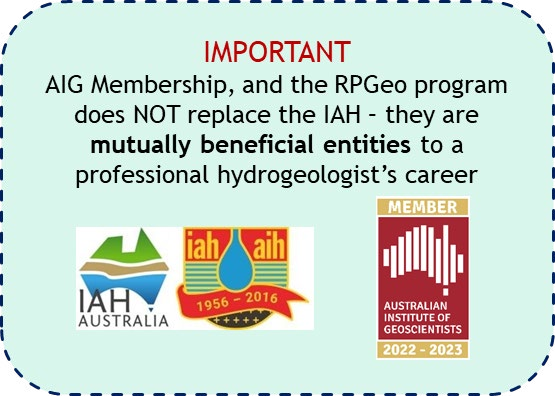
The Australasian Code for Reporting of Exploration Results, Mineral Resources and Ore Reserves (‘the JORC Code’, JORC : Mineral Resources and Ore Reserves) is a professional code of practice that sets minimum standards for public reporting of minerals exploration results, mineral resources and ore reserves. Although JORC does not require RPGeo status (it requires competency, which is described in detail in (JORC Competent Person – A baseline review in a global context | Australian Institute of Geoscientists (aig.org.au))), it started the process of professional recognition, and competent person (CP) accreditation within the Geoscience community.
The key to understanding the relevance of this is to understand the JORC Code purpose – it provides a mandatory system for the classification of minerals exploration results, mineral resources and ore reserves, and reports that are prepared under the code are completed for the purpose of informing investors or potential investors and their advisors. The JORC Code is not a how-to-do-geology guide – it is a system of common language and communication tools.
In the context of hydrogeology, a similar code would be of value – again, aimed not at how-to-do-hydrogeology, rather how to report in a manner that meets the three JORC Code criteria of competency, transparency and materiality. Such a guide does not need to be long or technical, and work in this space has already commenced by others with similar professional sentiments to the authors of this paper. More of this will come in due course as this presentation is expanded on.
Accountants, dentists, engineers, financial advisors, legal practitioners, medical practitioners, registered nurses and teachers are all obligated to meet varying degrees of membership / professional registration standards in Australia (JORC Competent Person – A baseline review in a global context | Australian Institute of Geoscientists (aig.org.au)). Geoscientists who operate to the JORC Code have to also meet CP requirements.
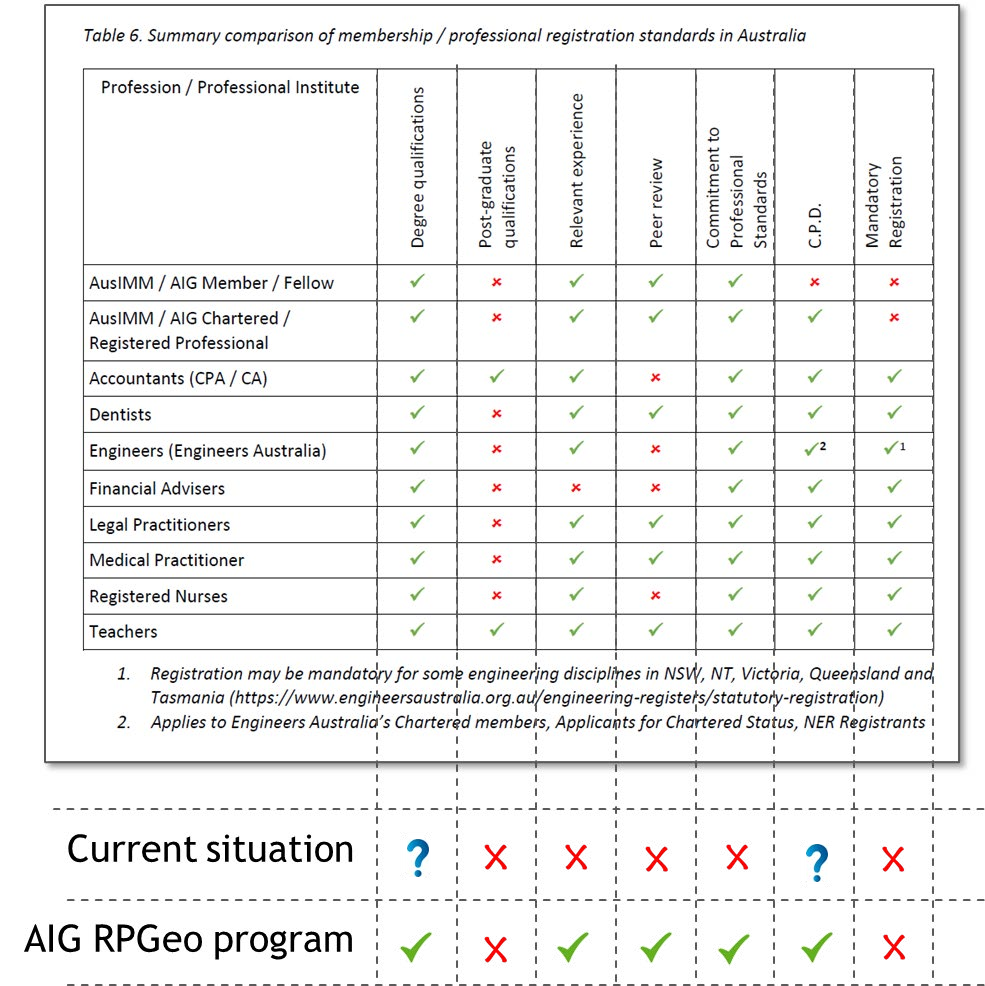
Hydrogeologists in Australia currently have no such obligation.
The RPGeo program provides this missing link between public communication and industry professionalism, and does so with independent scrutiny of experience and qualifications.
Anyone can theoretically call themselves a Principal hydrogeologist, but only those who have applied for and meet the requirements of RPGeo can claim to be an RPGeo. This is a very important differentiator for the public.
It is further noted that international project engagement is now a common component to most hydrogeologists’ careers. When compared with other jurisdictions, Australia is lagging in this regard. To practice as a Hydrogeologist in Canada for example, you need Provincial or Territorial accreditation as a P.Geol, in the UK, you need to be a Chartered Geologist. Numerous other countries have the same or similar requirements.
Australia has some of the worlds’ best hydrogeologists. International reciprocal recognition of our credentials has no chance though without some form of established competency or accreditation process.
It is up to us to raise our standards, not to ask our international colleagues to lower theirs.
So what is actually being asked of here?
On a scale of 0 to 10, where:
We are suggesting that the RPGeo program falls at about a “6/10” – it achieves professional accreditation (without need for registration), it is a peer reviewed process which represents independency, it commits the member to a Code of Ethic and Complaints Review process, it provides the CPD needed to maintain currency in experience, it conveys willingness for public scrutiny and is a proactive means of leadership in our industry through self-commitment rather than an imposed criteria out of our control.
This score, because of the willingness for public openness, is also the start of the “level playing field”.
Currently, you could argue our industry sits about a “1-2/10” on the same scale.
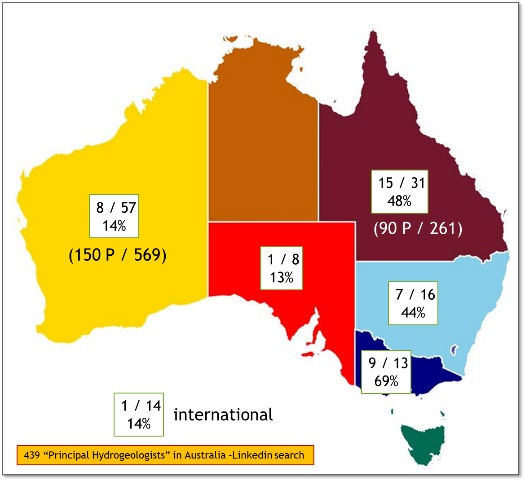
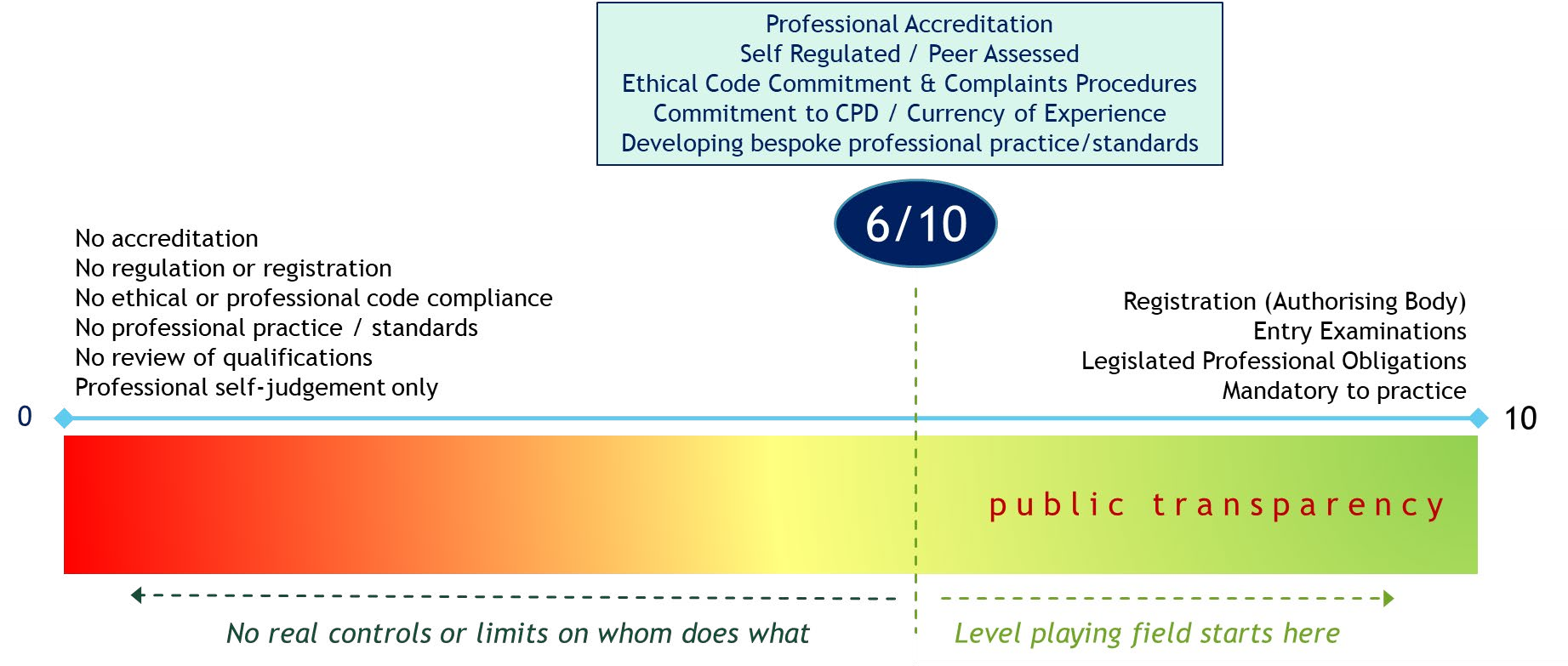
There have been many arguments used to discourage such membership in previous attempts. Some of those that have been heard by the authors include:
None of these appear relevant or defensible considering today’s global challenges.
Increasing awareness of ESG (especially in water management), increasing awareness of the need for technical competency and the roles that hydrogeology plays in larger projects, public awareness and perceptions, and professional pride in the work we do, are all easy deflectors to these arguments.
It is hoped that the large number of emerging leaders in our field also see the value of this, and in so doing recognise that leadership is not just a process of promotion from the local HR department – it is about contributing to positive change.
That is fundamentally what this process is about. Positive change, industry improvement and public awareness.
We concluded this paper not with a “next steps list”, rather a future vision of what we hope will develop:
We encourage discussion on this, feel free to reach out to the authors.
